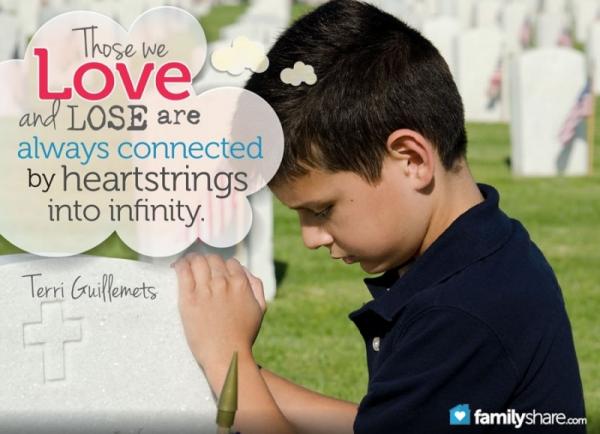
As an adult, the loss of a parent is difficult to deal with - imagine how it is for a young child. Children do have a hard time dealing with the death of a parent. There are so many questions and doubts running through their minds. Children can become emotionally detached. I know I was for a while. I was 9-years-old when I lost my father.
My mother approached me about the death of my father. She explained that daddy was very sick and God called him up to heaven so he wouldn't have to suffer anymore. I recall nodding as if I understood. But in reality, I didn't.
Maybe I didn't want to understand. I was in denial for an entire year. I did not understand how he passed away or why he had to go. I refused to speak for several months. I kept to myself. A school counselor was assigned to me twice a week during school hours because my mother and my teacher during that time were concern with my lack of communication and emotion.
I was too busy trying to figure things out. I would ask myself questions such as "Did I do something wrong?"�,"Was daddy hurting?"�, "Why doesn't anyone tell me anything?"� or "Is Daddy ever coming back?"�
I had endless amount of questions, but not once did I dare to ask my mother or anyone else. Needless to say, I spoke very little about my emotions to the counselor. I continued telling everyone I was fine when I honestly wasn't. I faked a smile, kept to myself and did what kids were supposed to do - homework, play with my sister and friends and watch television.
I used to love writing (I still do). I grabbed hold of a small gray calendar book my father had given me a couple of years prior to his passing. I used that book as my diary. I wrote down my feelings, my questions and drew stick figures of my mom, sister, dad and I. I still have the book. I am happy I did write because it was one of the ways I was able to handle the death of my father along with the endless amount of love from my mother and sister.
A year after my father's death - when a friend's mother passed away - I finally accepted the cruel reality that Daddy was never coming back. At that moment, I knew my dad was gone forever and that it was perfectly fine to cry. It felt wonderful to release an entire year of pain.
As adults, my mother, sister and I had a grown-up discussion about my father's death. My mother expressed how she wished she was more open and thorough about the situation. She confessed how fearful she was to explain in detail my father's illness and it's inevitable outcome. She assumed that I was fine because I continuously said I was fine with a smile. She said if she knew exactly how I was feeling then, she would have taken a different approach.
Based on my personal experience, here are three suggestions on how to help your child cope with a parent's death:
Allow your child to ask as many questions as possible
.
Be as honest as possible with your answers. Do not make up fairy tales. Try your best to maintain sincerity in the responses because your child's frame of mind is important. They should know their parent passed away and will never return.
You may not feel comfortable explaining in details the reasons why his or her parent passed away, but try your best. You do not want to shut your child out from knowing something. Also, if your child does not approach you, it is a wise decision to approach them. Let them know you are available to answer questions or available just to hear him or her talk about their feelings. Let them know they are not alone in feeling sad, depressed or confused.
Have your child write how he or she feels in a diary
. Maintaining a diary is a great form for your child to release emotions and thoughts. If your child is afraid to speak, maybe writing or drawing can give them a sense of freedom, a sense of self-expression.
Seek assistance from your priest, a leader in your church or a counselor
. As the surviving parent, you are grieving as well. You may have a difficult time discussing the situation so perhaps someone from your church, community or your child's school counselor can step in and speak to your child. One thing to keep in mind, your child may not want to speak. He may say everything is fine. Please do not take his word for it. A child who just lost a parent is definitely grieving inside. I know I was. He just may not know how to admit it.
Helping a child cope with the death of a parent is not an easy matter, but it is not an impossible one. Do not give up on your child when she says she is doing fine. Chances are she is not. Just like you, your child is in pain and grieving. We all have different styles of grieving. Nevertheless, we all do and we all need as much support as possible. The pain and suffering that comes with the death of a parent will never go away, but it will be a tad easier to deal with as long as the right support is given.

